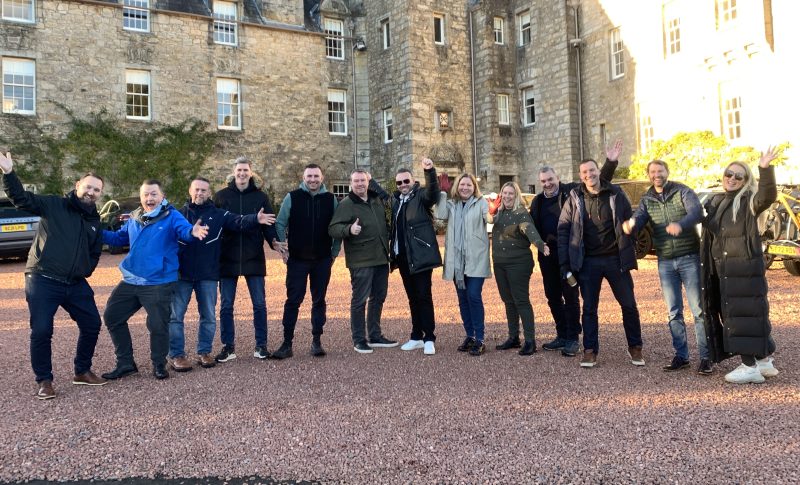Mood, Mindset, and Money.
Three things for CEOs to consider before buying outdoor experiences
If you’re about to spend company money on leadership and team development, stop and read this first!
As a CEO, you and your Learning & Development (L&D) colleagues are successful in growing organisational performance through developing employee capability. It’s up to your L&D team to source the right blend of e-learning, on the job training, external courses, coaching and more to get the people in your organisation performing at their best. When it comes to team and leadership development, you have a broad mix of options to choose from.
If you are researching outdoor programmes and experiences for your leaders and teams (see our Why Outdoors? Seven Great Reasons) you’ll want to know how these will move the performance dial for your organisation, and how to find the right provider to deliver it for you.
Here are three broad categories of outdoor programmes and experiences which may help you decide what you need. They are not so much discrete choices, but options which you might want to take elements of to help you develop the requirements for your programme.
Mood
Fun, fizz and reward
If you want to reward your people, then getting them off site and engaged in something fun and physical is a great option. You will want a provider that offers a clearly defined product, sometimes literally out of a box or off a shelf, and something they have turned the handle on lots of times before. They will have a virtual and hard copy catalogue of some sort.
You will be looking to pay an appropriately low to moderate price per head for this.
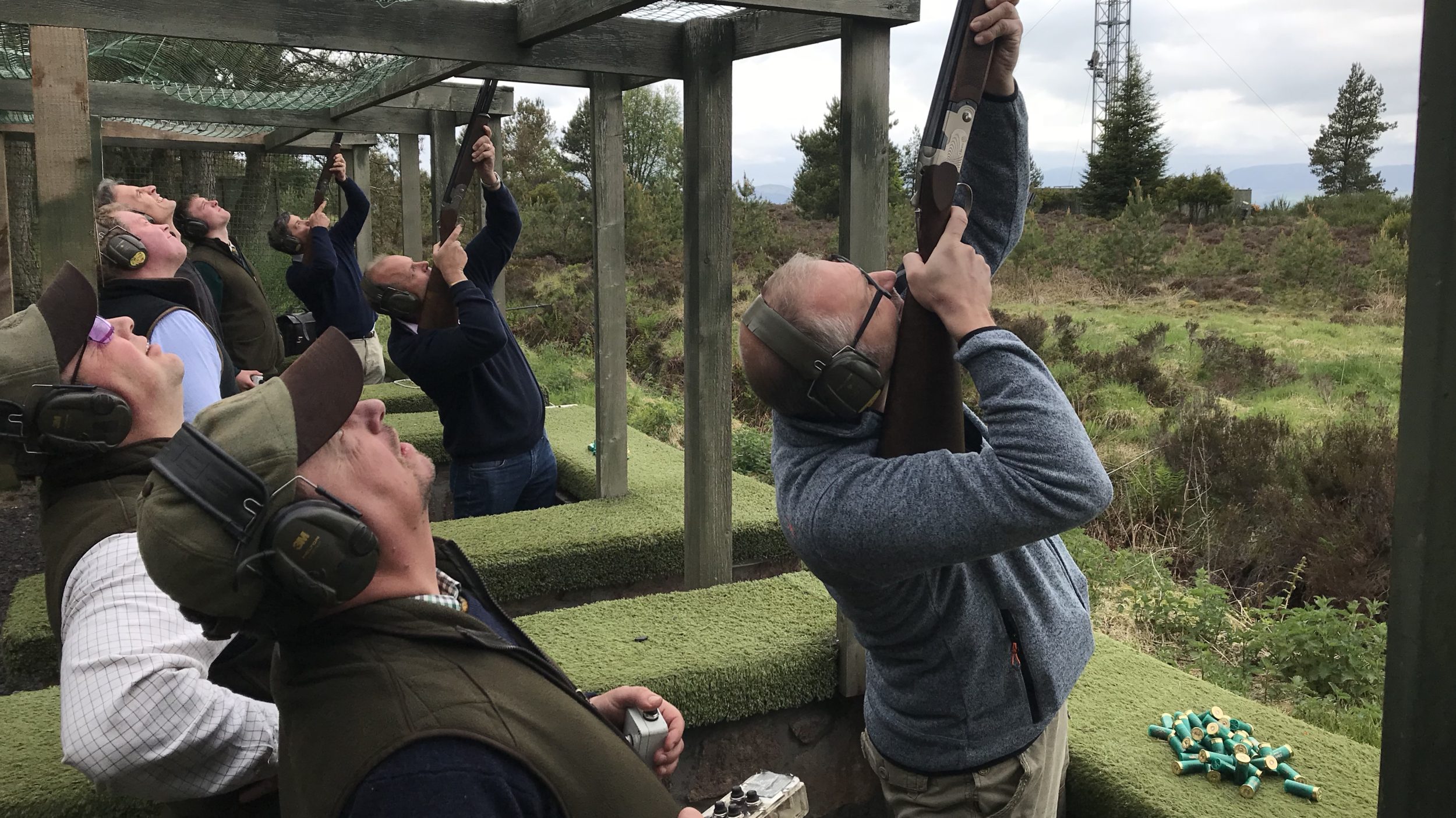
Photo: Dave Stewart
However, the bottom-line benefits of these kind of ‘fun & fizz’ days are often short term. When they work well, they lift people’s mood and can boost the feel-good factor in teams. There is a sense that ‘morale’ and ‘cohesion’ have improved. This can be an illusion. The afterglow will fade. Behaviours are unlikely to change. And performance improvements will be short term.
This category is a cost.
If not carefully scoped and communicated they can be divisive. And the more physical and demanding they are, the more you may inadvertently favour the ‘gladiators’ in the team and alienate the others. You may unwittingly deepen rifts and reinforce negative dynamics.
Wild. Very wild!
Teamwork, character, endurance
Expeditions have long been held as a means of developing “character” and aspects of teamwork.
These usually involve extended time away in testing and arduous environments, and the learning of skills from, and expedition leadership by, technical experts.
Think of Raleigh International and the Clipper Round the World Yacht Race.
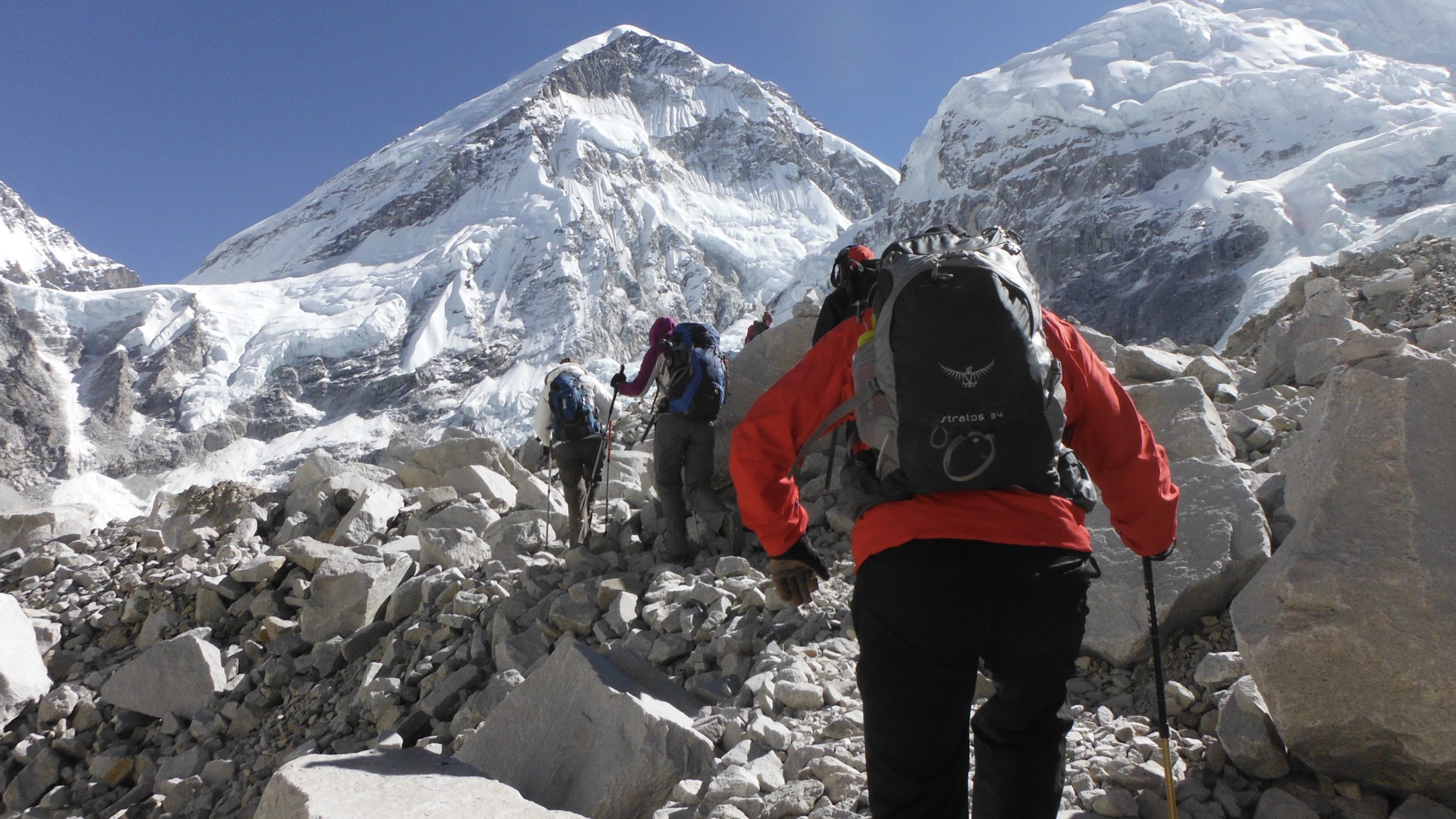
Photo: Dave Stewart
“Vision quests”, an umbrella term for rites of passage and discovery of personal purpose, can also be included in this broad category. Vision quests – in the modern, western interpretation of the term – can also include therapy-based programmes.
This is a category that holds considerable physical and psychological risk and is potentially expensive in time and money. Make sure your providers are appropriately qualified and experienced and have robust risk management arrangements in place.
Mindset
Self-awareness, trust, and team function
This category is specifically about individuals and teams; and you are interested in outcomes that improve business performance.
You are investing in deeper work which is potentially transformative in a whole range of ways. Not just individuals’ behaviours and “soft” (non-technical) skills, but subtle and not so subtle changes in organisational culture and performance. Depending on how you scope your requirement, this category will also promote awareness of and connection with the wider natural environment.
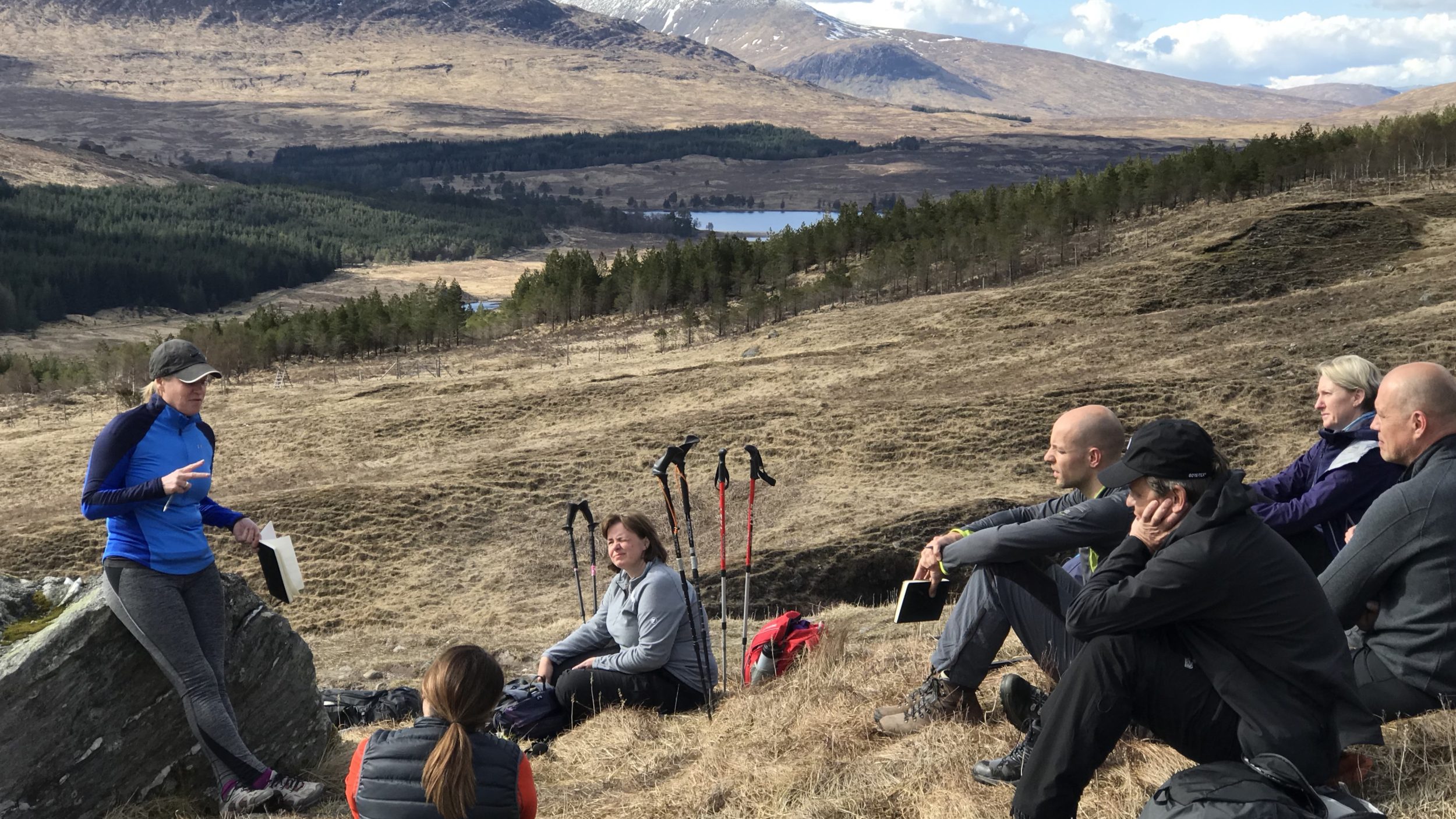
Photo: Dave Stewart
This will include, for example, high pay-off coaching and facilitation around self-awareness, trust, courage, mindset, collaboration and more. It can encompass retreats, treks, and simulations. It can also include workshops in outdoor settings – “walkshops.”
Your provider will not only keep you safe in the outdoors, and take you to inspirational places, they will have the skills and experience to co-design bespoke programmes and experiences. They will have the confidence to create the conditions for your people to explore and evolve with as little or as much coaching and facilitation as needed to achieve your goals. These skilled coach-facilitators will work dynamically in-the-moment with your people in the service of your desired outcomes.
You are looking for long term, high impact outcomes. This category is about business value rather than price. It is about investment rather than cost.
So, if this is an investment, how do you demonstrate return on investment (ROI)?
ROI
Clarity of objectives, evaluating outcomes
The Kirkpatrick Scale has been used in various forms since Donald Kirkpatrick first published it in 1959. Most recently updated in 2016 by his son James, the scale can be used as a framework to demonstrate the ROI that training delivers.
● Level 1: Reaction The degree to which participants find the training engaging and relevant to their jobs
● Level 2: Learning The degree to which participants acquire the intended knowledge, skills, confidence and commitment based on their participation in the training
● Level 3: Behaviour The degree to which participants apply what they learned when they are back on the job
● Level 4: Results The degree to which specified outcomes occur as a result of the training.
But be careful. With the emergence of informal and user-directed learning and development, and other influences on employee performance (e.g. leadership changes, new systems and processes), a clear mapping between a training event and performance outcomes – at Levels 3 and 4 in particular – may be very hard to make.
That said, participant and stakeholder narratives can be powerful and valid if collected as part of a well-directed inquiry process.
We make a point of discussing and agreeing with clients up front how evaluation will be conducted. Typically, evaluation will involve pre-event engagement with participants to explore, amongst other things, their specific needs. This ensures that a very high degree of relevance is designed into our programmes and experiences from the outset.
Post-event verbal debriefs and evaluation questionnaires (that reflect the specified objectives and outcomes) are combined to create a Level 1 understanding. Further engagement with client sponsors over the subsequent 3 – 9 months allow for the development of evaluation at Levels 2, 3, and 4.
What now?
Once you’re clear on why and how you’ll use an outdoor programme as part of your L&D mix, look for a provider that you can work with to co-design and deliver what you need. (See our blog on Team Away-Days. Getting the Most for your Investment).
It may be that you need to develop a programme or simulation that brings together aspects of all 3 categories. For example, a simulation (such as one of our Mountain Rescue themed Team Missions) designed to deepen trust and creative challenge in a team ahead of major organisational scale-up can involve the fun and competition of search drone flying, as well as the stretch of trauma management and cliff rescue, whilst primarily focused on an inquiry into how the team needs to operate with courage, resilience, and common purpose.
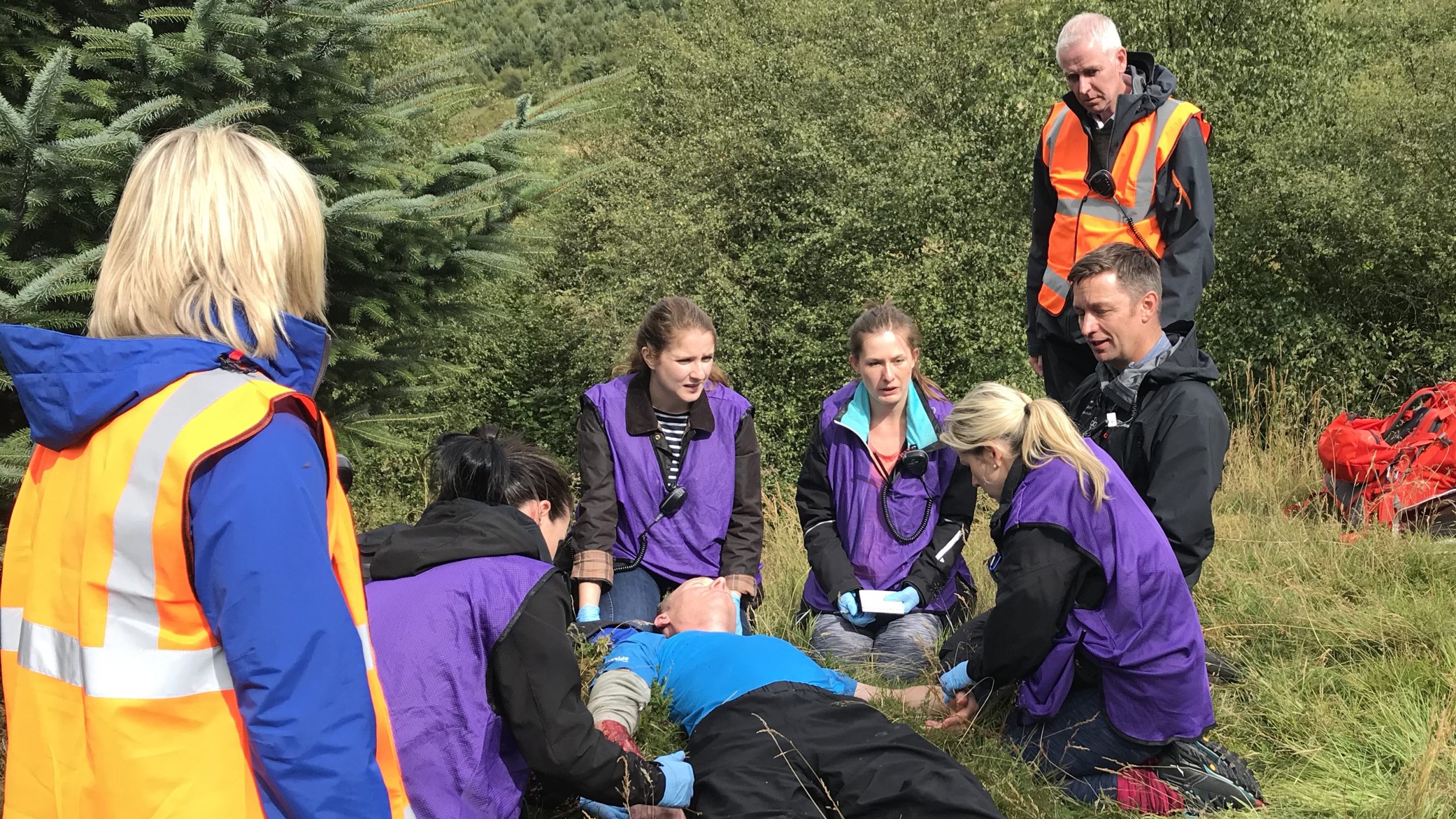
Photo: Dave Stewart
For this, you’ll need an experienced and creative “Mindset” provider that really understands business, not a Mood booster or a Wild experiences expert. The provider will also need executive coach-facilitators with appropriate outdoor qualifications and arrangements with specialist partners where necessary to deliver a logistically seamless, safe, and high value business leader program.
A creative and experiential “Mindset” provider like The Fresh Air Leadership Company has the skills and experience to advise L&D professionals on how best to achieve their leadership and team development goals, and will work with you to shape a powerful programme that delivers what you need.
We believe the world needs better leaders. Contact me now to explore how we can help.
Dave Stewart
Managing Director
The Fresh Air Leadership Company


